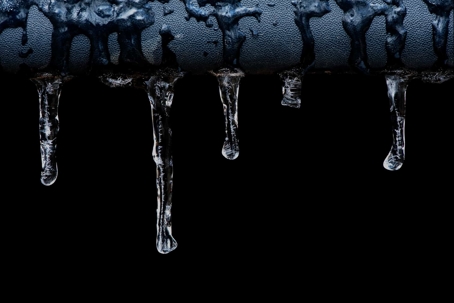Winter brings with it a host of challenges, and one of the most common and troublesome issues homeowners face is frozen pipes. Not only can frozen pipes disrupt your daily routine, but they can also lead to costly repairs and potential water damage. To help you avoid this inconvenience, we have compiled a comprehensive guide with practical tips to keep your pipes from freezing this winter.
1. Insulate Exposed Pipes
Insulating exposed pipes is a crucial step in preventing them from freezing. Start by identifying any pipes that are exposed to cold air, such as those in unheated areas or near exterior walls. Use pipe insulation sleeves or wrap them with heat tape to provide an extra layer of protection. This simple measure can significantly reduce the risk of frozen pipes.
2. Seal Drafts & Cracks
Cold air can seep into your home through gaps, cracks, and drafts, increasing the likelihood of frozen pipes. Inspect your windows, doors, and foundation for any openings and seal them with weatherstripping or caulk. By eliminating these entry points, you can maintain a warmer indoor environment and safeguard your pipes.
3. Keep a Steady Temperature
Maintaining a consistent temperature inside your home is crucial in preventing frozen pipes. Set your thermostat to a minimum temperature of 55°F (12°C), even when you're away. This will ensure that your pipes stay warm and reduce the risk of freezing. Additionally, consider opening cabinet doors to allow warm air to circulate around pipes located in kitchen and bathroom cabinets.
4. Let the Faucets Drip
Allowing faucets to drip slowly can help prevent pipes from freezing. When temperatures drop below freezing, running water, even at a trickle, can help relieve pressure in the pipes and prevent them from freezing. Although this may increase your water bill slightly, the cost is minimal compared to the expense of dealing with a burst pipe.
5. Drain Exterior Faucets & Irrigation Systems
Outdoor faucets and irrigation systems are particularly vulnerable to freezing. Before winter arrives, make sure to disconnect and drain all garden hoses. Shut off the water supply to exterior faucets and drain any remaining water from the pipes. If you have an irrigation system, follow the manufacturer's instructions for winterizing it properly.
By implementing these practical tips, you can significantly reduce the risk of frozen pipes and the subsequent headaches they bring. However, if you encounter any plumbing issues or need professional assistance, Centennial Plumbing, Heating & Electrical is here to help. Our experienced team of plumbers is equipped with the knowledge and expertise to handle all your plumbing needs promptly and efficiently.
Remember, prevention is key when it comes to frozen pipes. Don't wait until it's too late; contact us online or call (306) 500-7392 to take action now to protect your home and avoid the costly consequences of frozen pipes.

